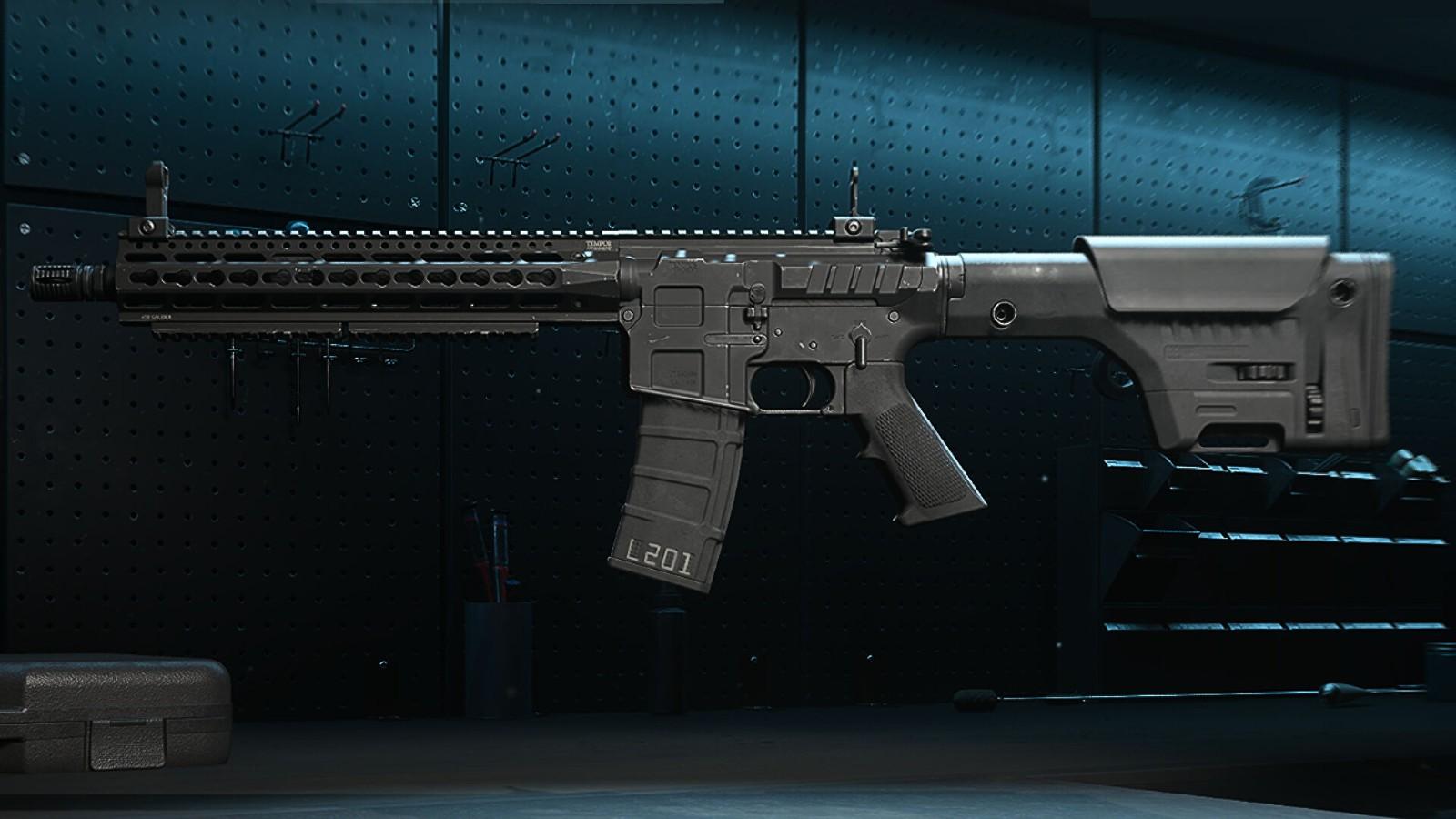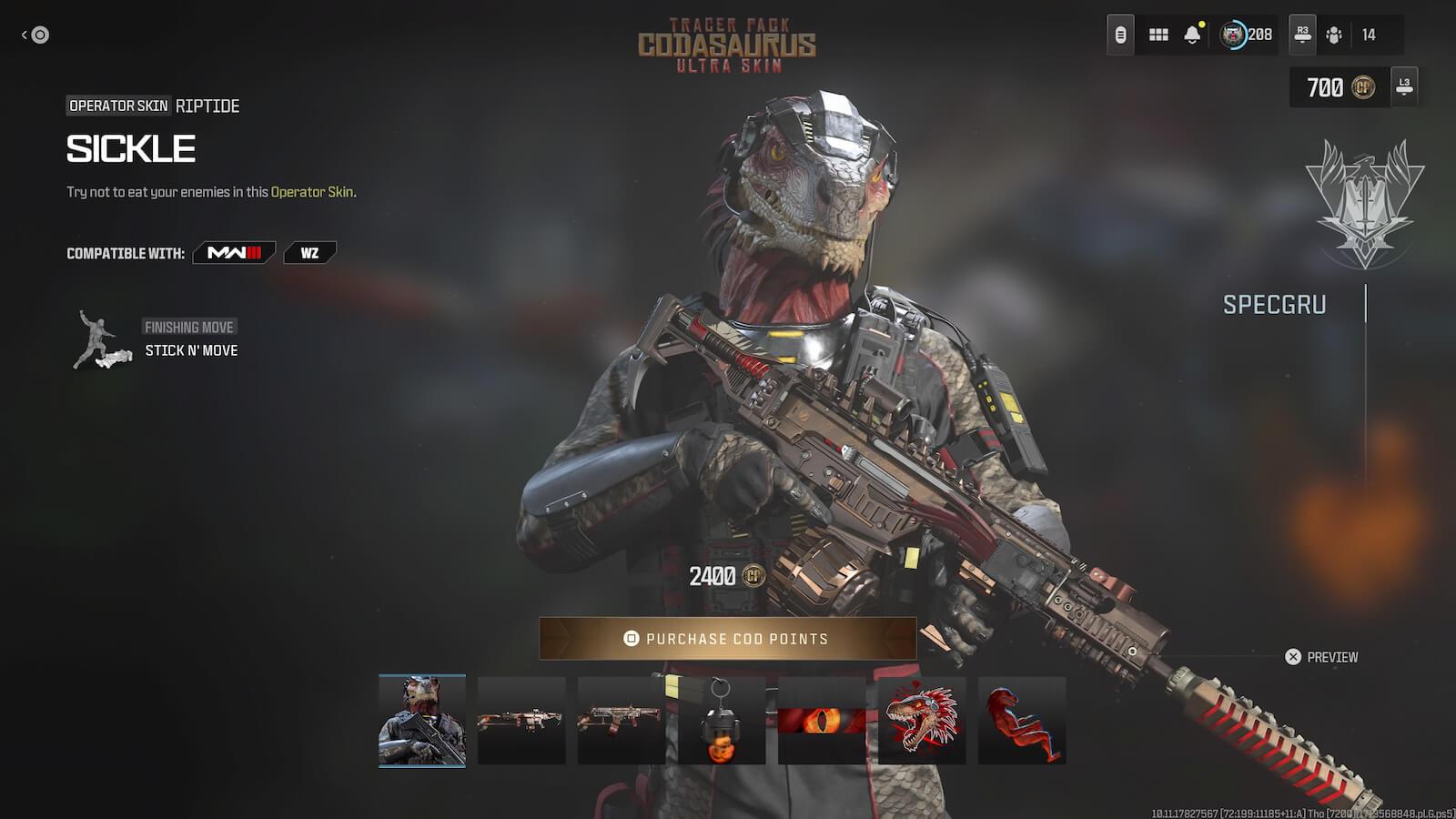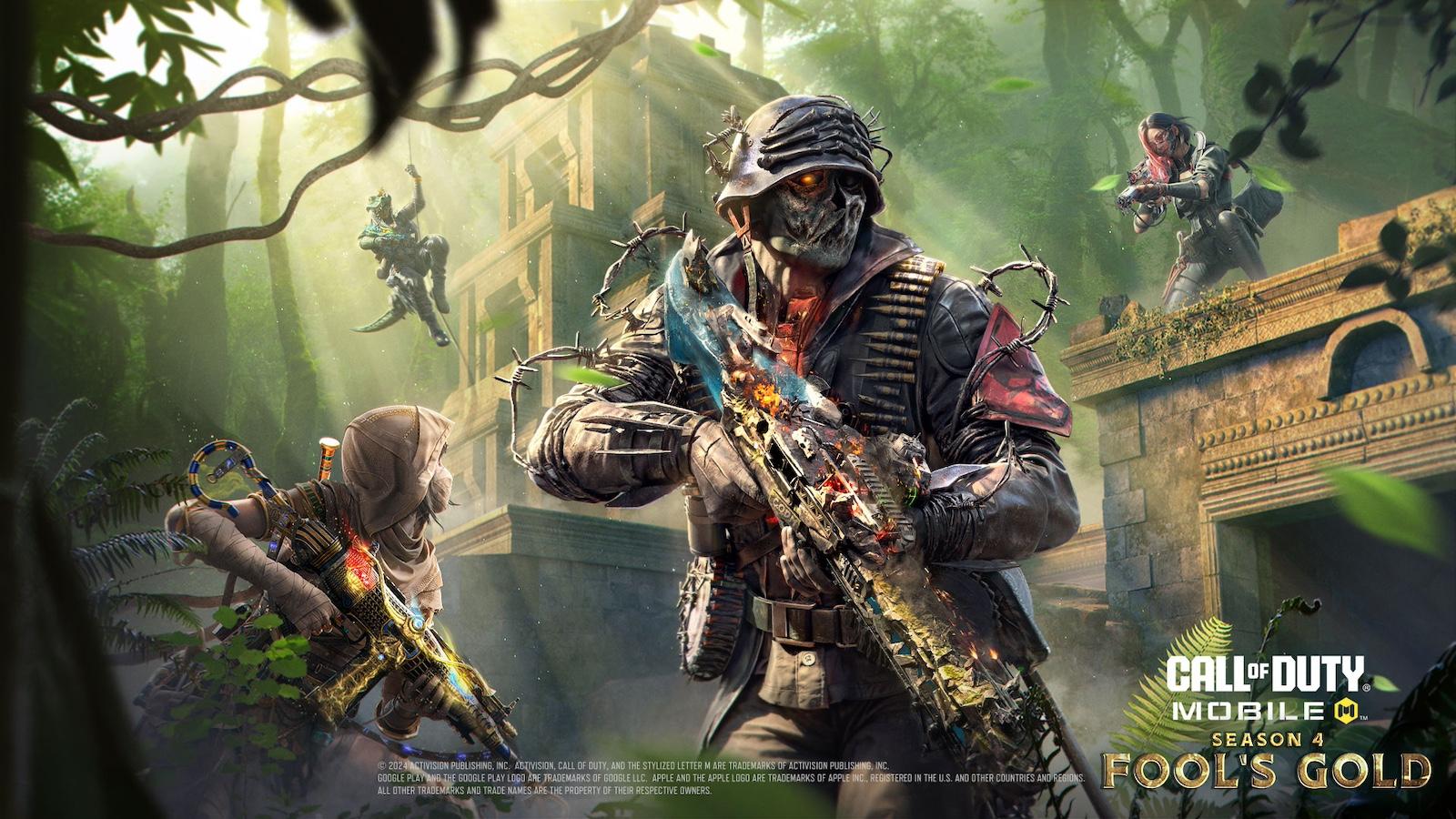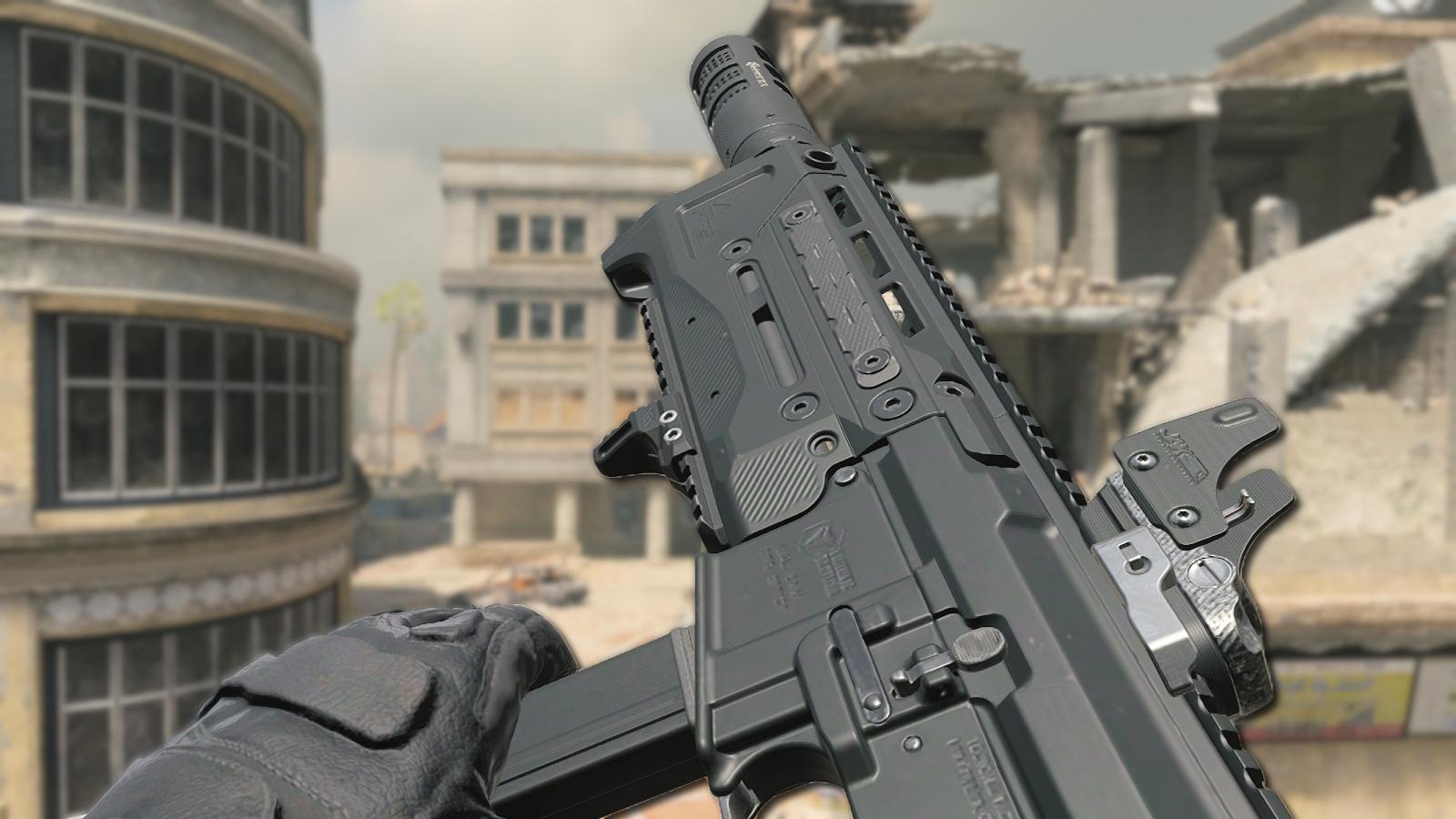Why Dallas Empire vs Chicago Huntsmen is Call of Duty’s new eClásico
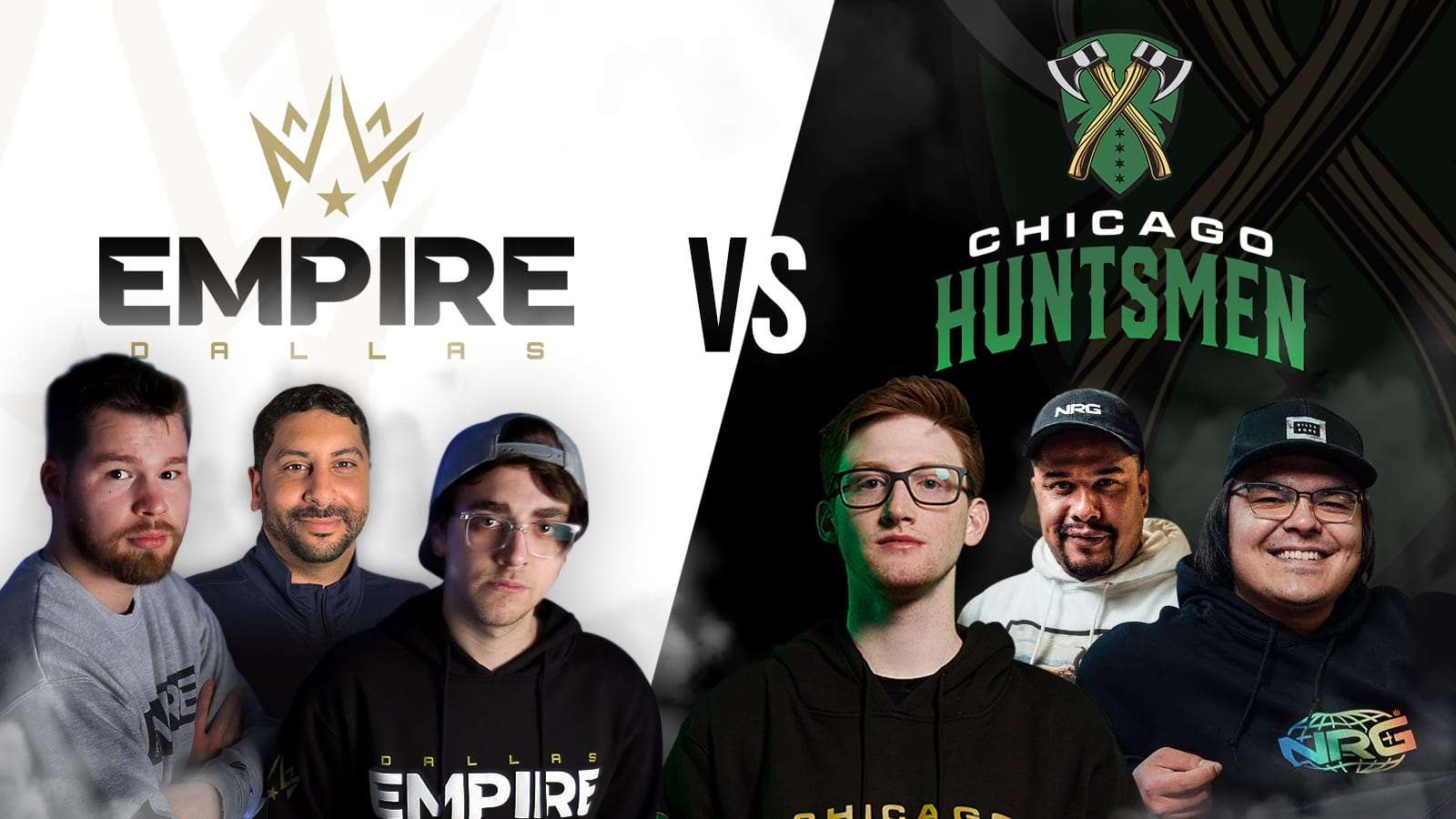
When Dallas Empire face Chicago Huntsmen at the launch of the Call of Duty League on January 24, it will be a historic moment for the game.
After more than a decade of open circuit competition, Call of Duty is moving to a franchised league with new, city-based teams. Dallas Empire and Chicago Huntsmen have not yet played an official game, but when they meet in the opening match of the CDL, they’ll already be carrying the weight of the game’s most iconic rivalry.
As a result, the match should not be considered as the debut of two new teams, but as the latest iteration of eClásico.
[ad name=”article1″]
What is eClásico?
Long-term Call of Duty fans will probably have heard the term ‘eClásico’ in various broadcasts, but for those unfamiliar with the origin, it derives from soccer’s ‘El Clásico’, the name given to the legendary rivalry between Spain’s two biggest teams: Barcelona and Real Madrid.
Literally translating as ‘The Classic’, El Clásico is one of the most iconic matchups in the entire sporting world. Not only are Real and Barca two of the most successful sides in the world, but they represent the two largest cities in Spain and carry the weight of all the history and politics that come with them.
So eClásico isn’t a name than can be invoked lightly, and while there have been plenty of rivalries in Call of Duty over the years, only one has deserved to bear that title so far – that between OpTic Gaming and Team Envy.
With Dallas Empire being owned by Envy and some of OpTic’s most legendary members joining Chicago Huntsmen, including former owner H3CZ, the story will continue at that opening game in Minnesota. This is a rivalry that has been brewing for 10 years, and a decade of history won’t be wiped out just because the main players are representing cities – if anything, it could become even more intense.
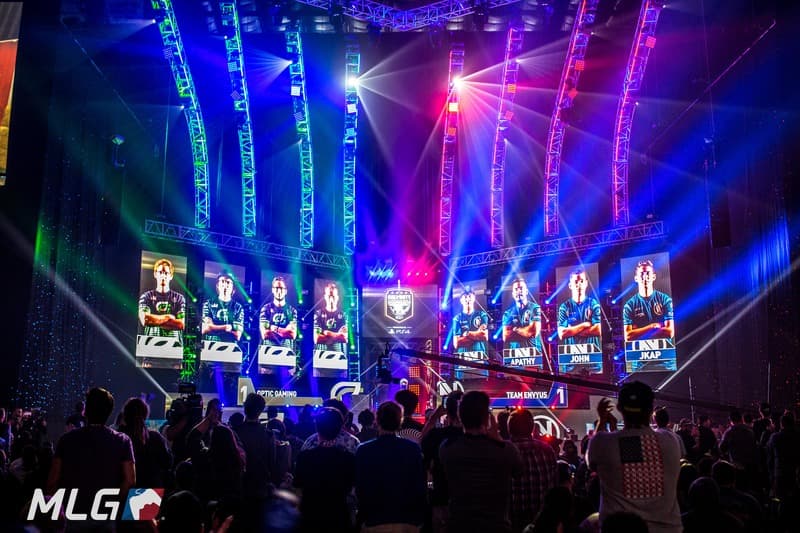 MLG
MLG[ad name=”article2″]
A Battle of Blue and Green begins
The origins of this rivalry can be traced back to OpTic’s very first step into esports. Envy were their very first opponents in OpTic’s offline debut at the MLG National Championship for Modern Warfare 2 in 2010. OpTic produced something of an upset over the boys in blue, but no one could have predicted that these two teams would be the only ones to endure throughout the open circuit era, pushing each other to greater heights and shaping the history of the esport.
OpTic and EnVy’s rosters changed significantly throughout the next 10 years, but the game’s most legendary players have turned out for either side, with some even transferring between the two. These transfers and the matches that followed would only add to the intensity of the rivalry.
When OpTic Gaming controversially dropped Raymond ‘Rambo’ Lussier in 2012 after a dominant MW3 season in order to make room for Matthew ‘Nadeshot’ Haag, it was Team Envy that offered him a new home. Rambo’s Envy line-ups would go on to reach the grand final of the Call of Duty Championships two years running, on one occasion eliminating OpTic Gaming in the lower bracket final.
Later, when OpTic superstar Seth ‘Scump’ Abner briefly left the team in 2014, he looked to Envy for a new home, although he was back in green before ever making an official debut for Envy.
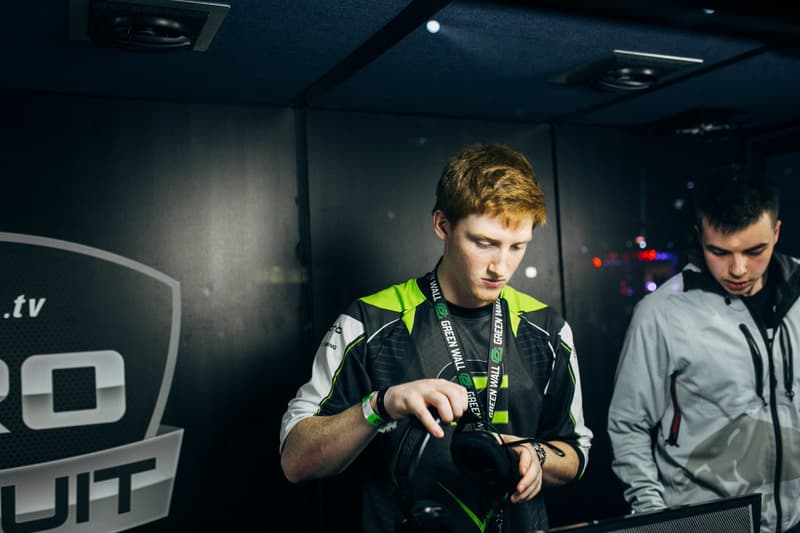 MLG
MLGLooking back at that pre-advanced movement era, names like Joe ‘Merk’ Deluca, Jordan ‘ProoF’ Cannon, and Jordan ‘JKap’ Kaplan could just as easily be remembered as legends of either organization. Even today, we have ex-OpTic players turning out for Dallas Empire and Chicago Huntsmen, but perhaps the greatest turning point for the two teams came ahead of the Advanced Warfare season.
[ad name=”article3″]
The rivalry advances
The fate of OpTic and Envy has always been closely intertwined, but that was never more true than at the end of the Ghosts season in 2014. Fans will remember Advanced Warfare as the year that kicked off the OpTic dynasty. What some might forget is that most of that squad was originally destined for Envy.
By the end of the Ghosts season, Evil Geniuses had finally been dethroned as the top Call of Duty team, and star player Ian ‘Crimsix’ Porter was looking for a new squad. His decision would affect the entire competitive landscape for the coming year.
His first choice of teammate was Matthew ‘FormaL’ Piper. FormaL had barely a single season under his belt in Call of Duty after making the switch from Halo, but he’d already established himself as one of the greatest raw talents on the circuit. He would help Envy fill the void after Evil Geniuses vacated the world number one spot.
The plan was for Crimsix to join FormaL and Merk on Envy, along with his former teammate, then two-time CoD Champs winner Damon ‘Karma’ Barlow.
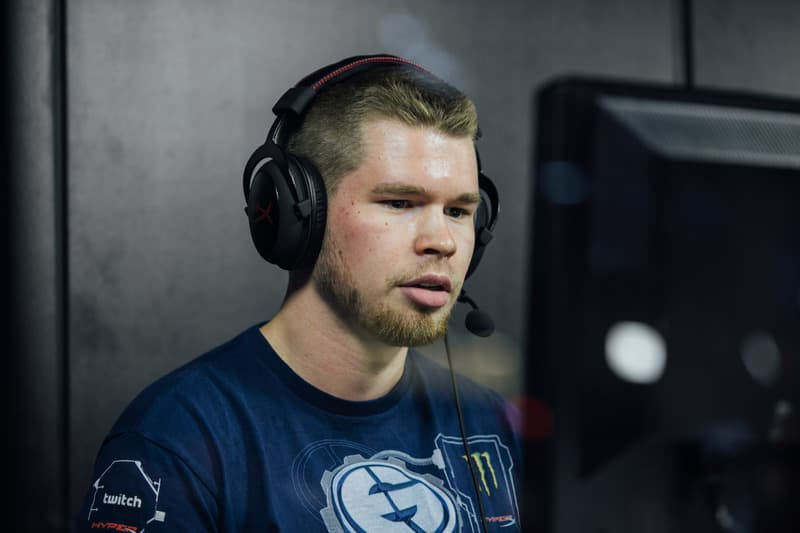 MLG
MLG[ad name=”article4″]
The trouble was that during the final event of the year, ESWC, Envy members JKap and Anthony ‘Nameless’ Wheeler discovered that they were about to be replaced after a season in which they’d taken the organization to another Call of Duty Championships final and claimed the world number one ranking.
In the ensuing drama, Envy ultimately decided to be loyal to their older players. So, FormaL and Crimsix joined up with Scump and Nadeshot on OpTic Gaming, later to be joined by Karma when Nadeshot retired during the Advanced Warfare season. The rest is history.
Though it’s hard to argue that OpTic didn’t come off better, Envy still had some chances to delay the team’s ascent to GOAT status. In 2016, after reaching the finals twice already, Envy finally lifted the CoD Champs trophy, and they did so with a winner’s bracket run that started with a win over OpTic Gaming. The green wall would have to wait yet another year for the title they’d been expected to win.
Of course, when OpTic Gaming finally reached their very first CoD Champs grand final the following year, there could only be one team standing between them and the title – Envy. This time, OpTic would not be denied, and they finally claimed the one title that had eluded them for nearly three years.
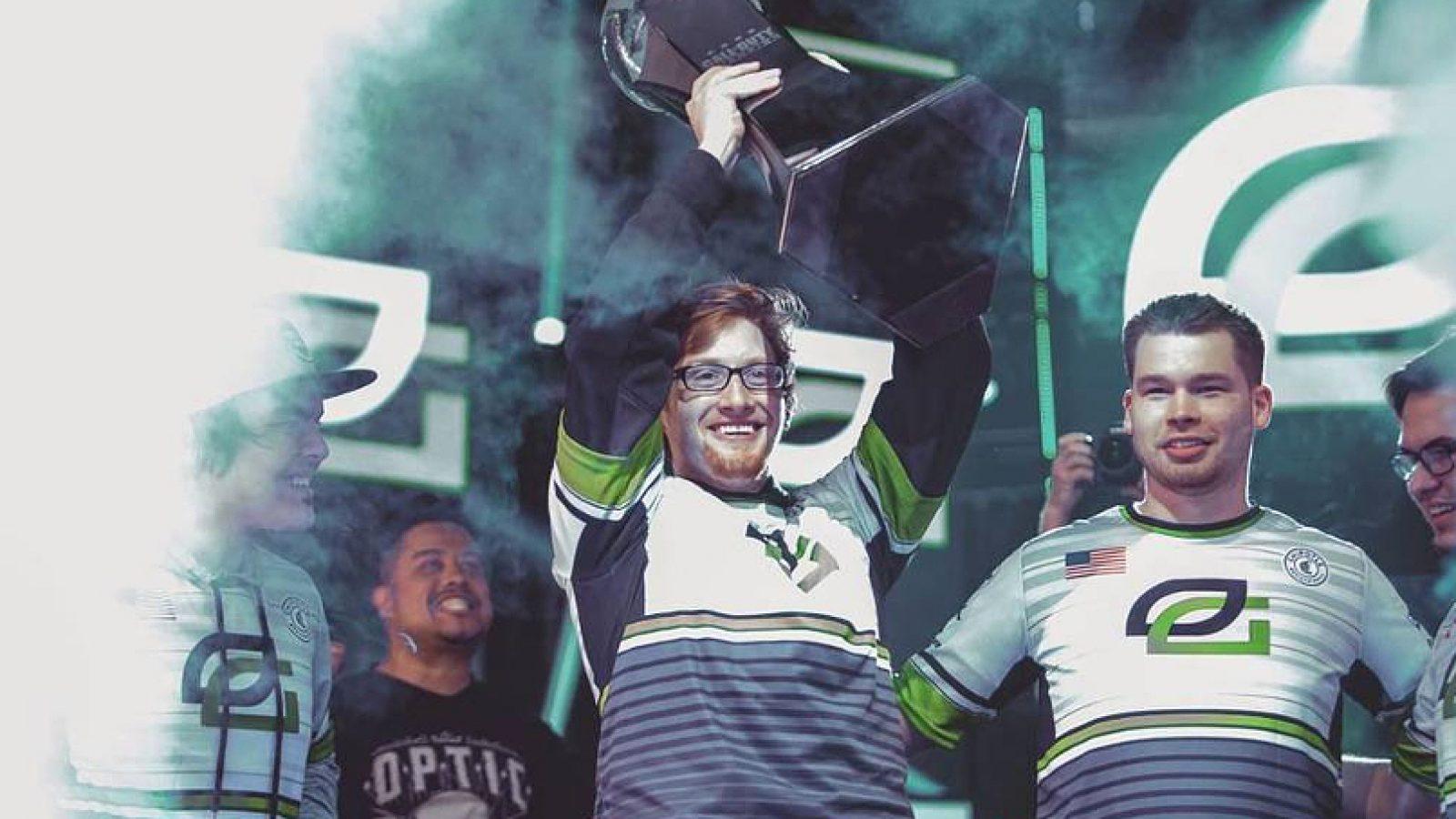
Surprisingly, both OpTic and Envy were surpassed by other squads for most of the Call of Duty: WWII season, and while OpTic bounced back somewhat in Black Ops 4, Envy continued to flounder with only one top four finish the entire season.
As they were not competing for tournament wins and world championships, the eClásico storyline took a back seat for a while, but the rivalry soon became a factor again as the franchised Call of Duty League was announced and rosters began to form.
What’s in a name
As Call of Duty moves into a new era of franchising, the lineage of eClásico gets a little muddied.
While the Envy name is no longer attached to a Call of Duty team on the surface, they are the owners of Dallas Empire, with Mike ‘Hastr0’ Rufail still pulling the strings. Fans with an open mind are getting used to the team representing Dallas, with Envy also owning the Overwatch League’s Dallas Fuel.
OpTic’s position in the CDL is far more complicated, as while the OpTic Gaming brand remains in Call of Duty with LA, its soul is with the Chicago Huntsmen.
Traditionally, esports teams haven’t represented cities and the success of teams like OpTic and Envy came from who they were and what they did rather than where they’re from. It didn’t matter where the OpTic House was, the green wall was made up of Call of Duty fans from around the world.
Even when they weren’t winning everything they were the biggest team around, and the architect of their success was Hector ‘Hecz’ Rodriguez.
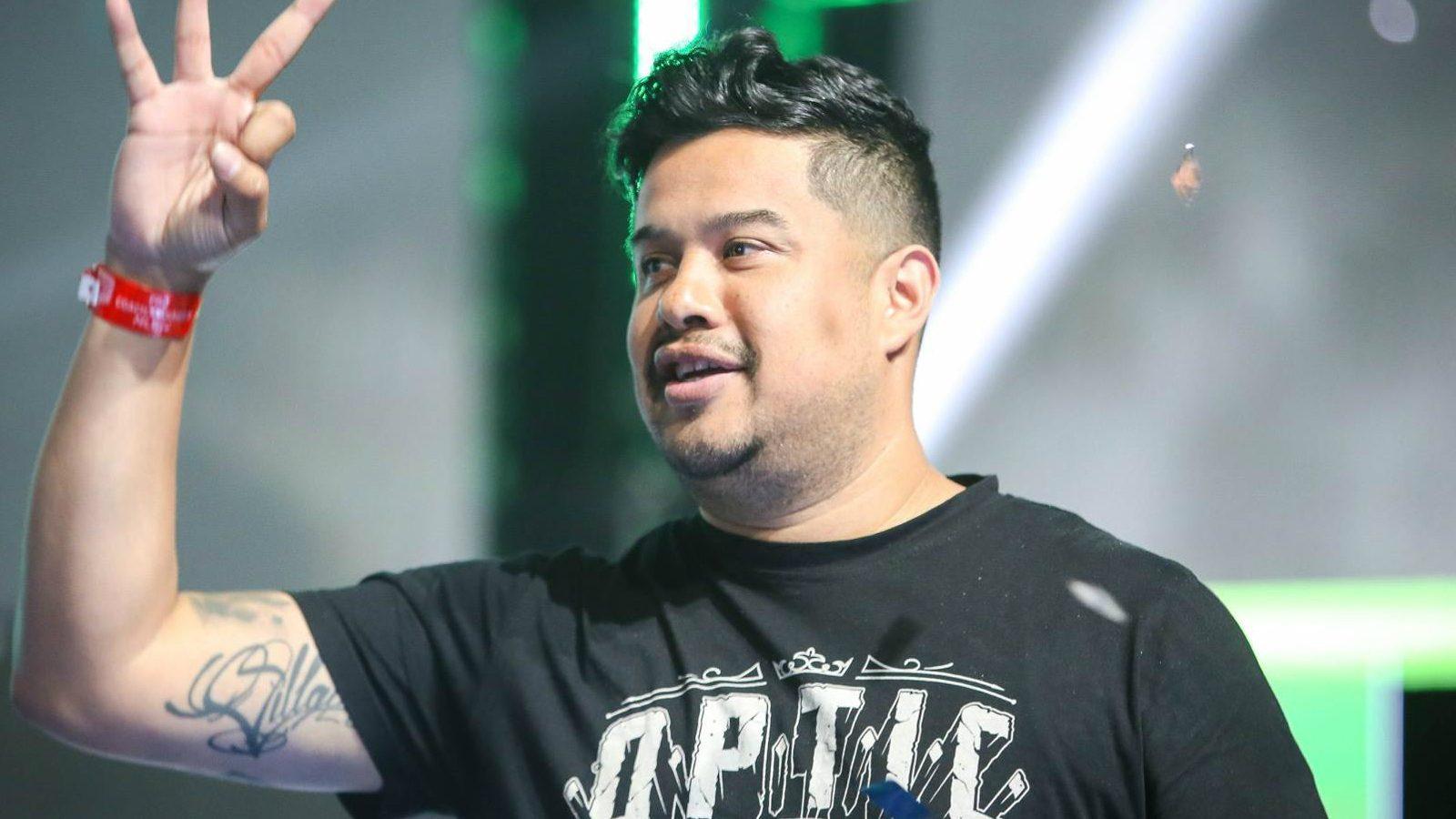
For a long time, especially in Call of Duty, joining OpTic Gaming was a guaranteed ticket to fame and fortune beyond just competitive success. When OpTic signed a new player, they made sure to introduce them to the fanbase as a new member of the family, and fans flocked to them because they knew each would play a role in telling the story of the team.
It was clear when Infinite took the reigns and Hecz stepped back that this philosophy had been largely abandoned. OpTic expanded more rapidly than ever before during the Infinite era of 2016/17, but rarely took the time to foster the same connection to each new player that fans were accustomed to.
With Hecz now entirely gone from the organization, and the brand purchased by a company that has no connection to the heritage of either OpTic or Call of Duty, the unavoidable reality is that not only has the CDL’s ‘OpTic Gaming LA’ lost its heart, but that heart will continue to beat in a direct competitor.
Hecz might not have been able to save the OpTic name, but he is back in esports as the co-CEO of NRG, and it seems much of his time and effort will be focused where old-school OpTic fans will appreciate it most – on the organization’s Call of Duty League franchise, Chicago Huntsmen.
It certainly doesn’t hurt that alongside Hecz himself, the Chicago Huntsmen is also home to the most iconic player OpTic ever produced.
Scump is not only by far the most popular active pro in Call of Duty, he was also the longest serving player in OpTic history. If that wasn’t enough, he’s joined by FormaL, another key member of the team’s most legendary line-up. There’s no doubt that for any OpTic fans of more than a year or so, Chicago Huntsmen will feel the most like home in the CDL, even though the OpTic name technically lives on.
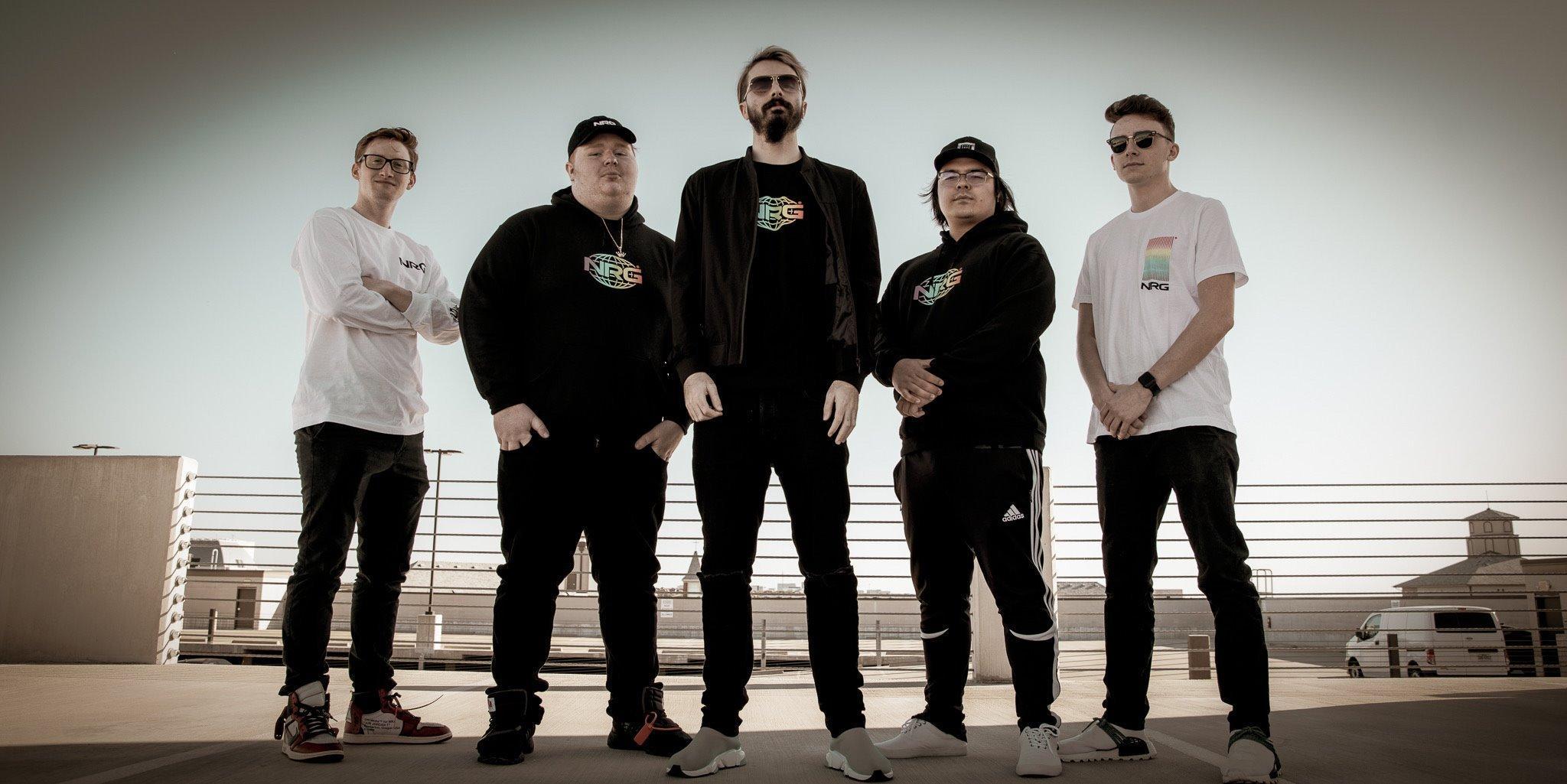 Chicago Huntsmen - Twitter
Chicago Huntsmen - TwitterEmpire vs Huntsmen
In addition to the history they carry with them, there are plenty of reasons to be excited for the Empire vs Huntsmen matchup right now. As has often been the case in eClásico, the current rosters will feature former teammates on opposite sides of the rivalry.
After the Black Ops 4 season finished in 2019, the legendary OpTic Gaming core that built the greatest dynasty Call of Duty has ever seen finally broke apart. While Scump and FormaL were reunited, Crimsix found his new home on Dallas Empire after a less than amicable split, and there’s no questioning that both sides will be determined to get one over on each other.
Meanwhile, former eUnited teammates James ‘Clayster’ Eubanks and Alec ‘Arcitys’ Sanderson will also play on opposite sides of eClásico, for Empire and Huntsmen respectively. As a result of franchising, this is the first time ever that the winners of the Call of Duty Championships have separated before playing another tournament together.
Both on paper and in early online showings, Dallas Empire and Chicago Huntsmen are shaping up to be two of the strongest teams in the Call of Duty League. Not only is eClásico alive and well, but it could be approaching some of the fiercest competition in the rivalry’s history.
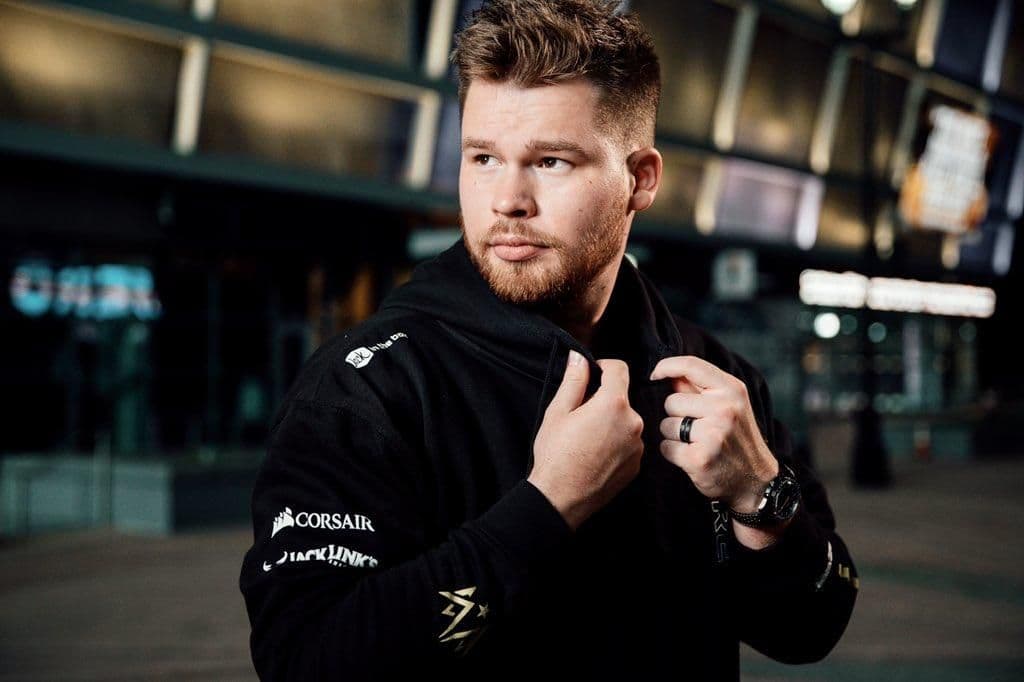 Dallas Empire - Twitter
Dallas Empire - TwitterA new eClásico?
Some might argue, perhaps, that the ‘eClásico’ moniker should be left to the past. If the teams it applies to no longer exist in their original state, perhaps it should be consigned to the history books – let teams in the new age develop new rivalries with new titles.
So why preserve the name? Why not let it die with OpTic and Envy in Call of Duty, a relic of a bygone era?
One of Call of Duty’s greatest strengths as an esport is its history, and the stories that have already been told. There is something special about the heritage of an esport which built itself from the ground up before there were developers and investors throwing millions around to make things work, and that should be remembered and celebrated.
The name ‘eClásico’ encapsulates the greatest rivalry in Call of Duty. It signifies that there is more to the competition than the present moment, and for it to pass from active use would be to lose a monument to the foundations upon which the new franchising era has been built.
eClásico should live on, but it should do so in honor of the people and the spirit in which it was born, and that legacy now resides in Dallas Empire and Chicago Huntsmen.
